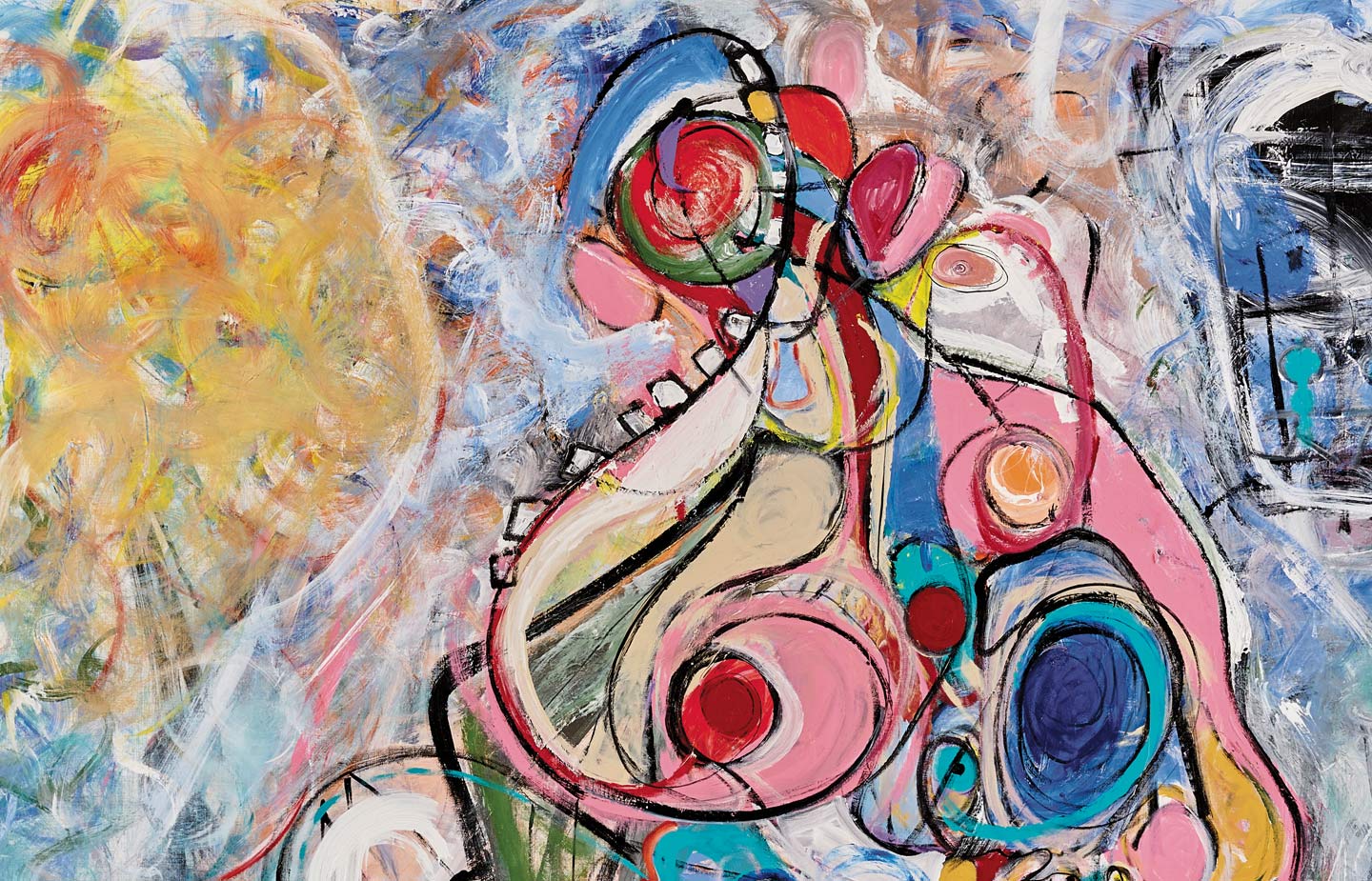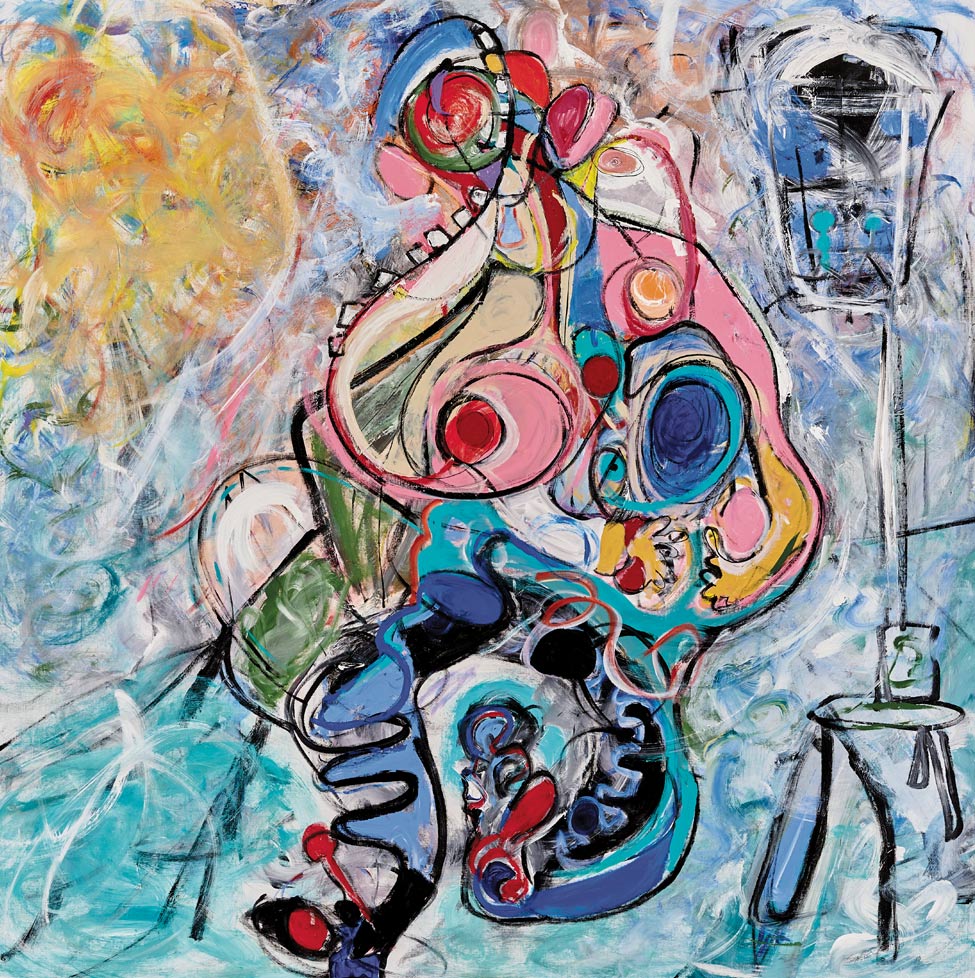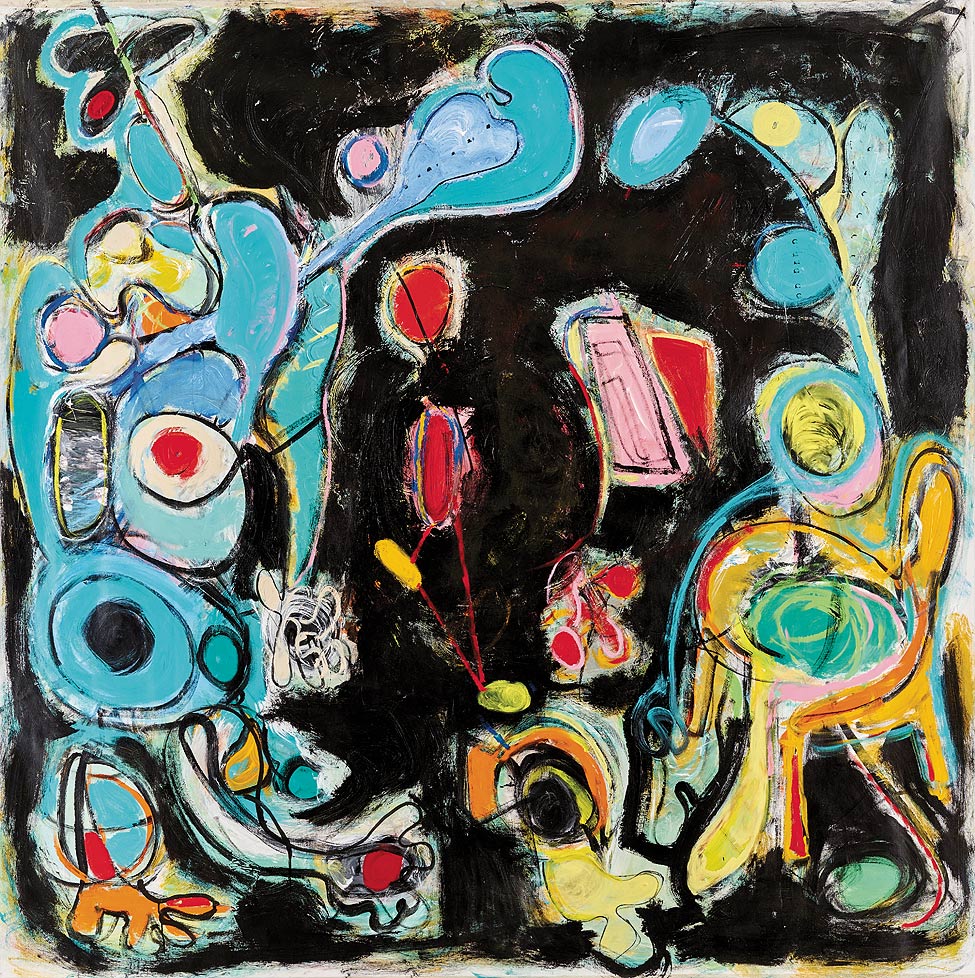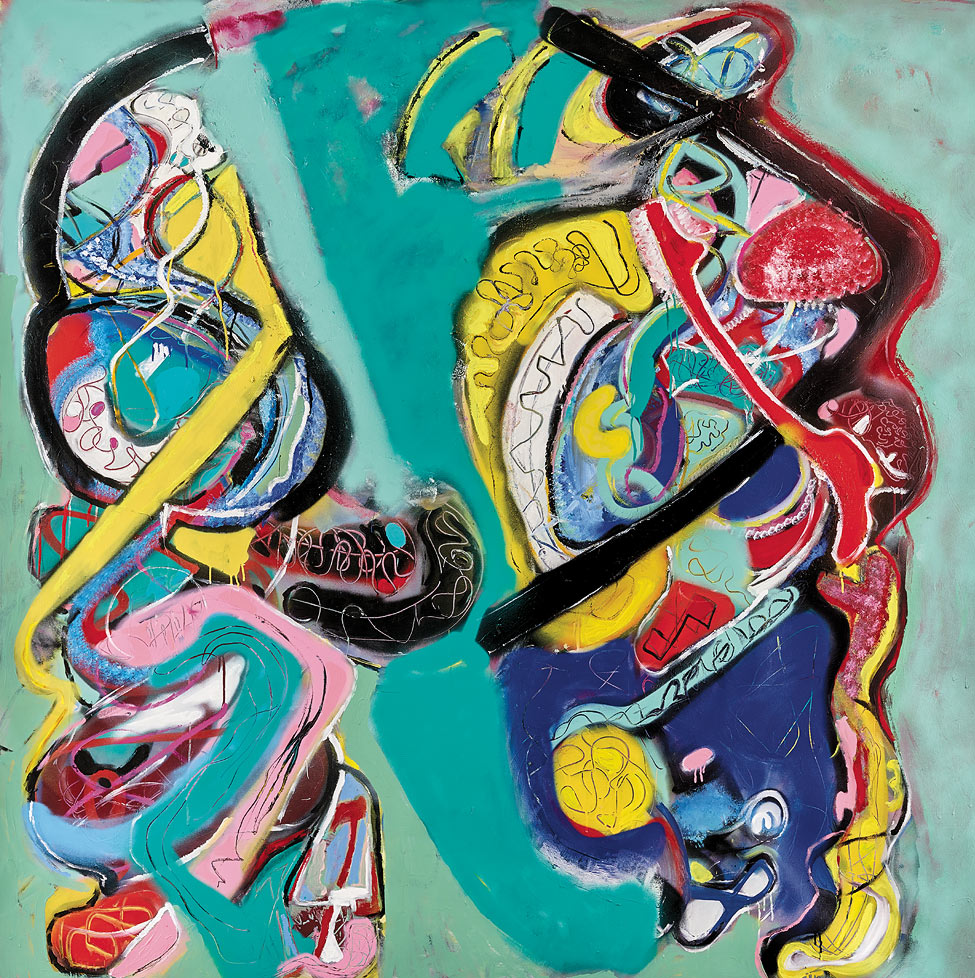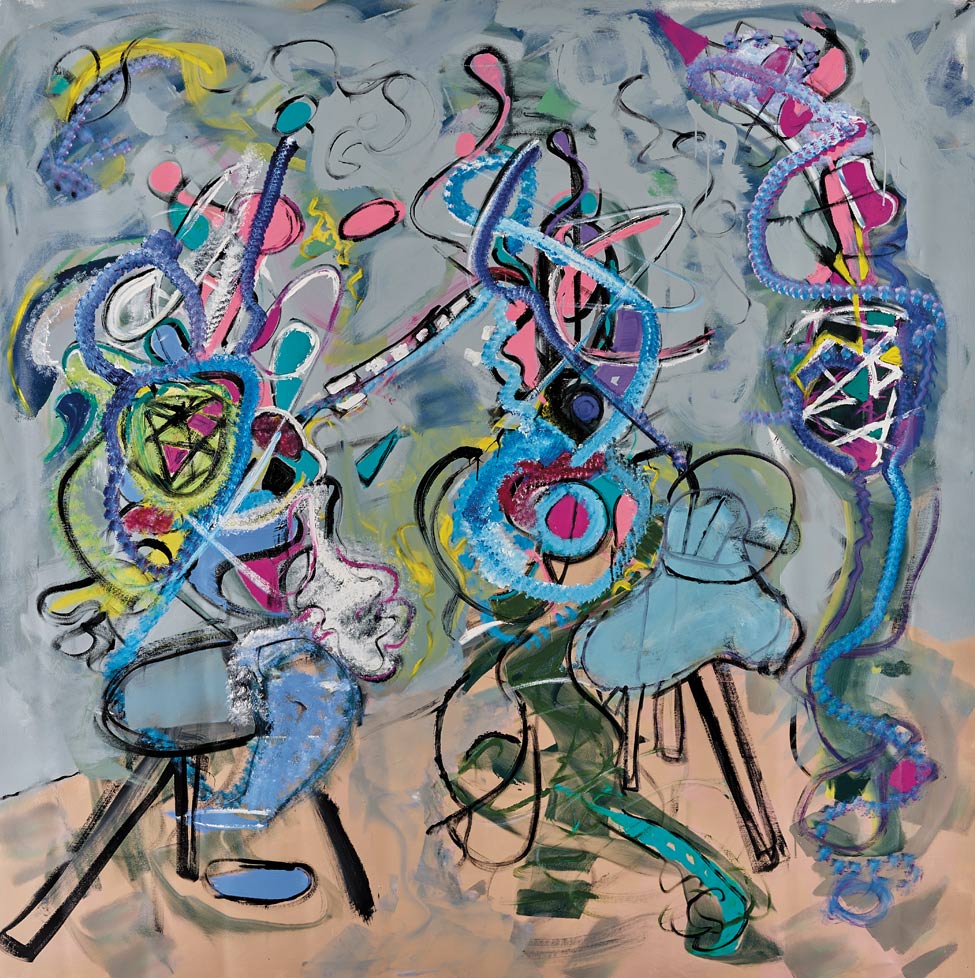Art as Conversation
Painter Alexander Yulish ’97 is making his mark on both the New York and Los Angeles art scenes.
In the age-old debate between nature versus nurture, Alexander Yulish ’97 represents both sides. Artistic talent is in his DNA. His mother, Barbara Pearlman, is a well-known New York painter and sculptor, who invited her son into the studio at a young age. But he also grew up in Manhattan, directly next door to the famous creative incubator the Chelsea Hotel—a fabled establishment in which the ghosts of legendary artists, musicians and literary figures long roamed the halls alongside their modern heirs.
That early exposure to the sensibilities of the art world, combined with a richly seasoned path that also includes a role in director David Lynch’s Inland Empire, is reflected in Yulish’s deeply personal, large-scale abstract paintings.
CC Magazine spoke to Yulish about his work, his childhood and his pivotal experience as a member of Conn’s crew team.
Doug Daniels: You divide your time between New York and L.A. How do you think living in two vastly different cities impacts your work?
Alexander Yulish: I feel very fortunate to be able to live in both places, because they’re both such intensely emotional cities. New York feels so alive; it’s almost hyperkinetic with this whole network of veins moving underneath it as you walk down the sidewalk. And if you’re aware, you can really pick up on the energy of the city, the people and the sounds. I think that has to make its way into my work, because everything you experience subconsciously goes into your work. Los Angeles is just as aggressive as New York in many ways, but it’s so beautiful it’s easy to be lulled into complacency, so I almost feel like I have to work harder there.
DD: What’s your process like? Do you prefer to work at night? During the day? Do you work on a painting for a bit and then come back to it?
AY: I like starting early and working into the late afternoon. I lose my focus by around 4 p.m, so I try to get a solid six hours in the studio. There’s a misconception, I think, that artists operate at a leisurely pace, and wake up, enjoy their coffee and relax. But for me, there’s almost an obsessive quality, and I can’t wait to get into that studio. I’m constantly thinking about my work, and by the end of the afternoon, I’m completely emotionally exhausted and I need to detach.
DD: What’s your entry point for a new painting? Are you inspired by current events, or something you’ve seen on the street, or is it more about examining your personal life?
AY: For me, I think it’s personal. It has to do with what’s going on in my mind and my emotions. But there’s no question that everything I witness or might hear on the news, or even a piece of music I listen to, will create an emotional dialogue that I might not be aware of. But when I go into the studio it suddenly comes out in my work. The key is to paint on an even keel. I don’t want to go into the studio with a preconceived emotion. If I’m angry or overly happy that will cloud the real emotions at my core. But once I start painting that’s when the fight begins. One minute I’m elated because the painting is going at a great pace, and then literally one stroke later I’ll feel like I’m about to lose it. I want to climb onto the roller coaster with an even keel, then take it for a ride, with no holds barred. That’s how you find authenticity.
